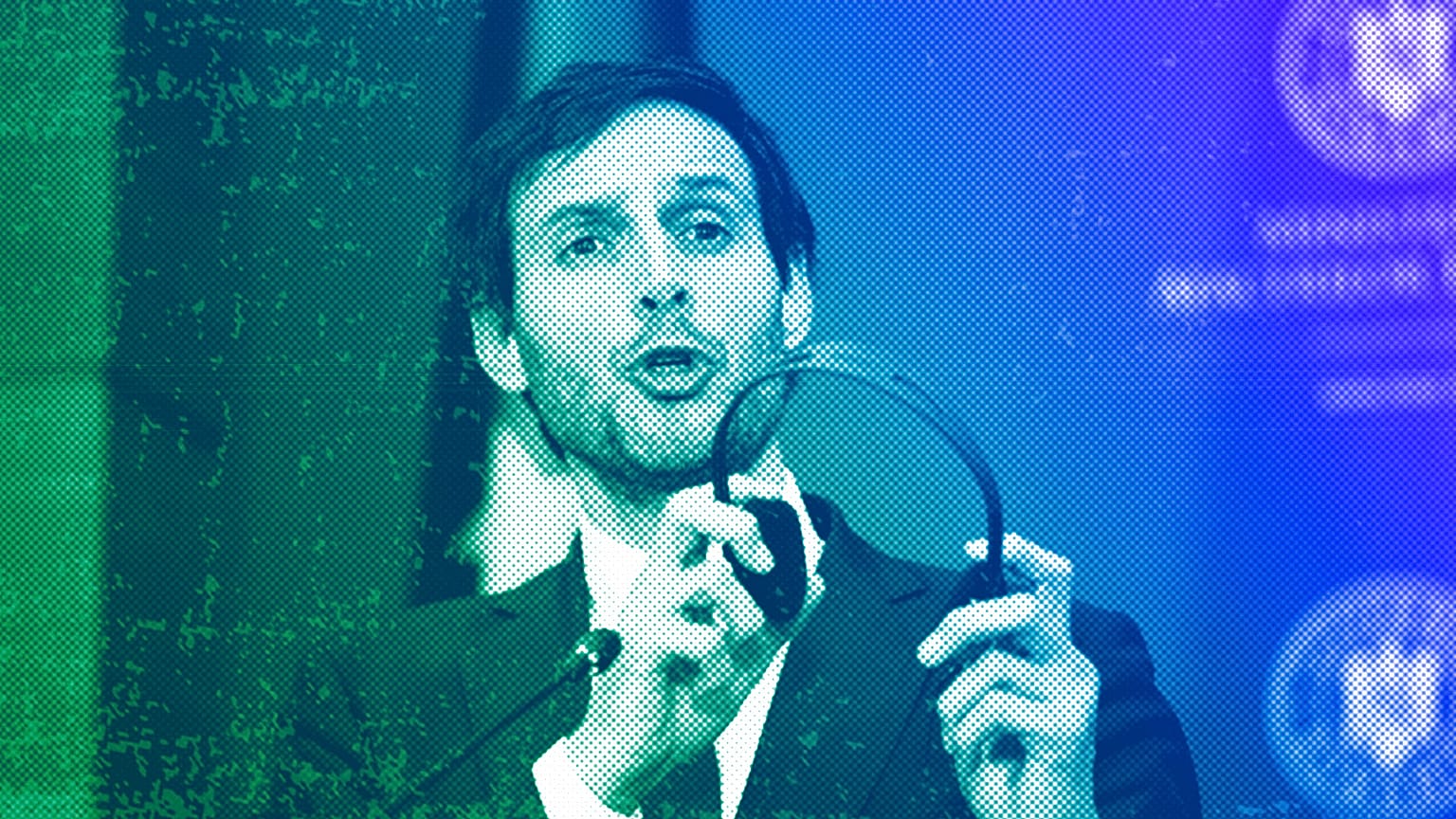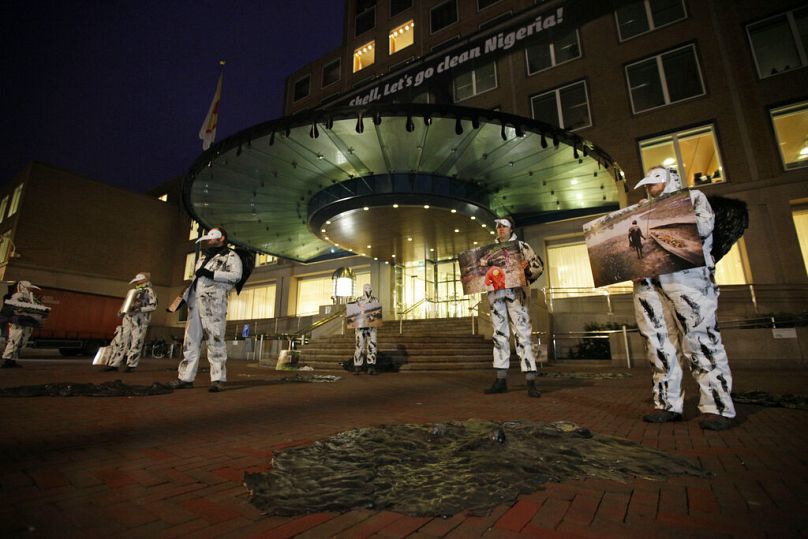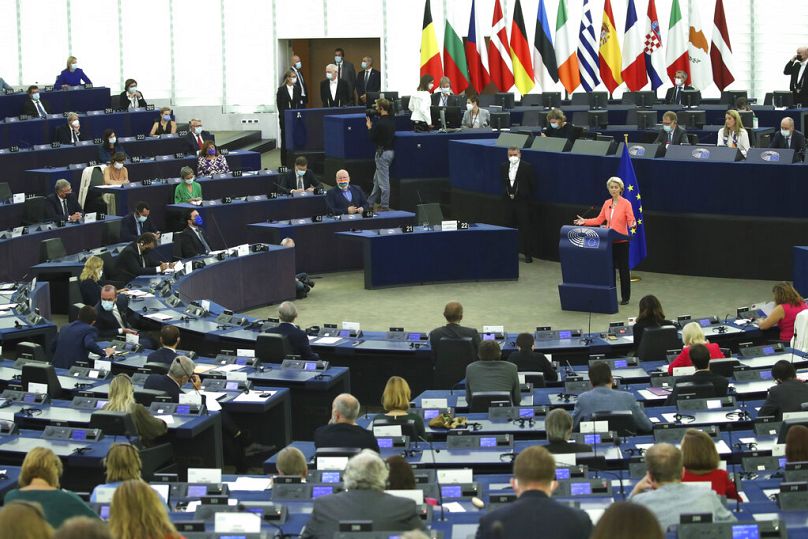Whilst fossil fuel companies' history of climate denial is common knowledge, there are still a worrying number of revolving door cases between fossil fuel companies and our EU politicians, Martha Myers writes.
Extreme weather has hit our homes and the headlines hard across Europe this summer. ravaging wildfires, flash floods, and drought have caused devastation as well as integral damage to our food and water systems.
The costs are second to none. In 2021, climate disasters cost the EU a devastating €56.6 billion, with an expectation this year will be far higher.
This is a severe wake-up call for the EU to pioneer unprecedented action, adaptation and mitigation to tackle the climate crisis.
Yet at this crucial historical moment, European Commission President Ursula Von Der Leyen has nominated Dutch Christian Democrat Wopke Hoekstra as climate commissioner, an ex-Shell employee and well-known corporate player.
Offshore businesses, oil and gas push, and airline subsidies
Last year, Shell notoriously reported an unprecedented €36bn in profits at the expense of vulnerable households whilst scaling back climate commitments.
The company has now committed to new extraction sites for pumping fossil fuels, entirely ignoring warnings from the International Energy Agency that new projects will take us into dangerous new levels of global warming.
Meanwhile, Hoekstra’s most noteworthy political achievement regarding climate is as a target of a parliamentary inquiry, where he pushed for further oil and gas exploitation in the north of the Netherlands and rebuffed compensation to devastated households in the region.
His track record of supporting climate and energy action is worse than zero. In his time as Minister of Finance, he provided over €3.4bn in support to aviation company KLM and actively weakened Dutch government objectives to reduce emissions of nitrogen — a potent greenhouse gas.
To top it off, whilst on the Committee to Combat Tax Evasion, he himself was investigated after the Pandora Papers exposed his shares in an offshore business, Candace Management, in the Virgin Islands. A huge hit to his integrity.
An oil person in charge would only add more fuel to the fire
It is hard to imagine a less suitable candidate to lead pioneering climate action and represent the EU at the Climate negotiations this December.
COP28 is already at risk of being dismissed as a talking house of oil barons. An ex-Shell representative for the EU would add even more fuel to the fire.
Hoekstra’s troubling history does not stop there. As a Dutch senator, he simultaneously worked for McKinsey, raising conflict of interest concerns given the consultancy’s controversial clients list includes big pharma, tobacco, and fossil fuel interests.
Moreover, his relationship with southern European politicians is already tense. He has been accused of a lack of European solidarity as he raised opposition to COVID-19 financial support whilst pushing further austerity measures.
No surprise then, that his nomination has raised eyebrows across the board.
A Dutch petition against the appointment passed over 30,000 signatories within 24 hours of its launch while MEPs from multiple parties have expressed concern.
MEPs could decide to send a clear — and green — message
A September hearing in the European Parliament will be a crucial moment for MEPs to oust Hoekstra’s candidacy and protect the integrity of the European Union's climate action. This refusal is rare, but there is precedent from 2019 and should happen again.
However, it’s worth remembering that Hoekstra is not a lone wolf, his nomination is part of a broader systemic issue: the corporate capture of decision-making by big polluters.
There is an extremely dangerous myth that experience in the fossil fuel industry equates to expertise in the energy transition. This is disingenuous at best.
The latest IPCC report shows the need for transformational action to phase out fossil fuels as soon as possible to mitigate the most catastrophic impacts across the world.
You would not ask the tobacco industry how to phase out smoking. In a similar fashion, whilst fossil fuel companies are put in the driving seat of our politics, we will not see the unprecedented climate action we need.
Fossil fuel companies’ primary interest is to stay in business, no matter the cost to the rest of us or the planet.
These companies also continue to pump millions into lobbying for false solutions such as carbon capture and storage and hydrogen, which delay and divert resources from real climate solutions, keeping the power in their hands and delivering nowhere near the change we need.
Conflict of interest must be treated as a major red flag
Whilst fossil fuel companies' history of climate denial is common knowledge, there are still a worrying number of revolving door cases between fossil fuel companies and our EU politicians.
Hoekstra’s example is one of many industry voices stepping into positions of power.
It is time for EU institutions to deliver a firewall and a Conflict of Interest framework to restrict the undue influence of the fossil fuel lobby over climate and energy policy-making across EU institutions, similar to the firewall measure on the tobacco industry.
To phase out fossil fuels and combat the climate crisis, the EU must keep not just Hoekstra, but all those with conflicts of interest, and all polluters and private profiteers away from political decision-making, rather than offering them the most powerful seats in the room.
Martha Myers is a Climate Justice Campaigner at the Corporate Europe Observatory, a non-profit research and campaign group aiming to expose any effects of corporate lobbying on EU policymaking.
At Euronews, we believe all views matter. Contact us at view@euronews.com to send pitches or submissions and be part of the conversation.


















